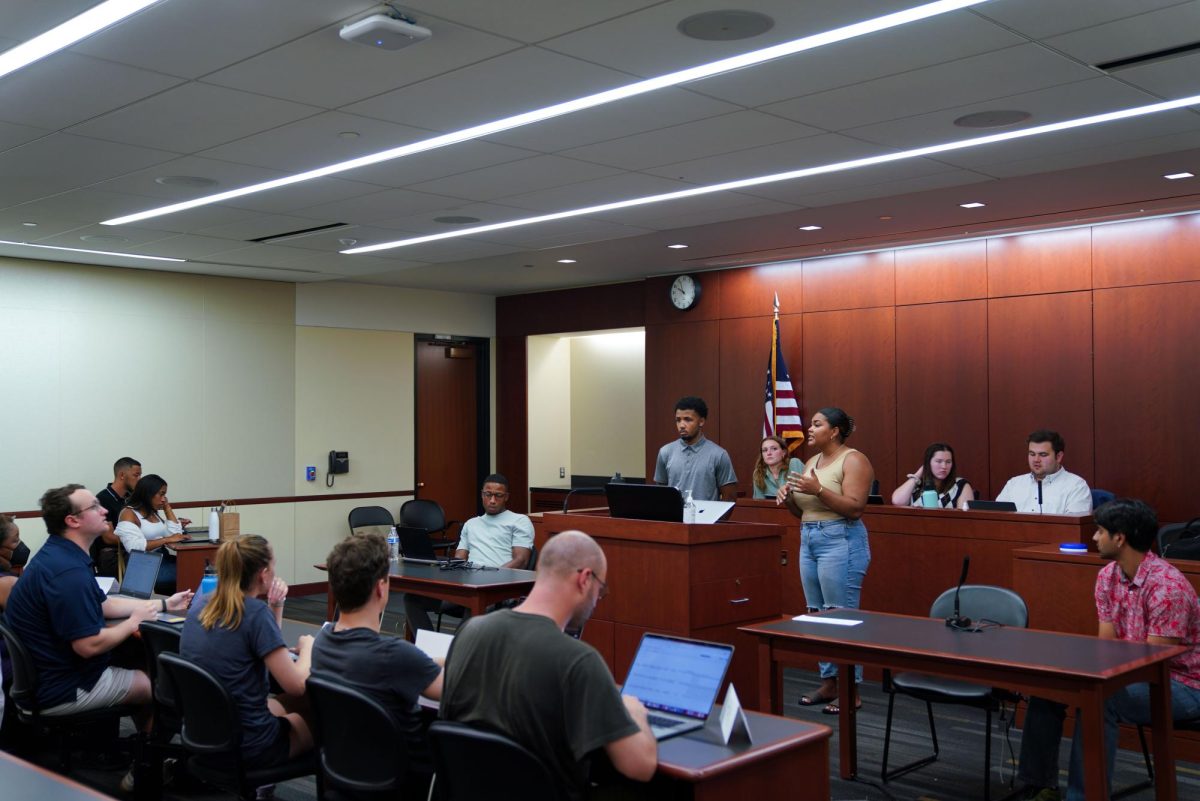The Student Bar Association Senate adjourned their Tuesday meeting without voting on how to allocate their annual funding to law school student organizations.
SBA Sen. Akhil Kambhammettu, the chair of the senate’s Finance Committee, sponsored the SBA Budget Allocation Act, which proposed dispersing the senate’s total budget of $194,997 into four categories — about $82,526 for student organizations, $20,000 for an ad hoc fund to be dispersed throughout the academic year, $1,000 for the Organizational Oversight Preparedness Supplement fund and about $91,470 for the executive budget. Thirteen law student organizations asked for a budget increase to fund cultural, networking and panel events for the 2023-24 academic year.
Senators decided to adjourn the meeting without finalizing how to allocate the budget to give senators more time to consider the student organizations’ appeals for more funding. SBA Sen. Charlie Schmidt said he did not “feel comfortable” saying no to all the appeals.
“We need to think through these appeals that we heard tonight,” Schmidt said. “The students came in here and advocated before us, and if we passed it without changing anything, that doesn’t seem right.”
SBA President Shallum Atkinson said the SBA previously had more funds to allocate to student organizations, but the University forced them to close their PayPal account during the past year, which was previously used to collect additional payments from students for items sold by the SBA Senate like lockers to store books in. He said officials also further reduced SBA’s budget during the COVID-19 pandemic because most events were virtual.
Atkinson added that the Student Association took a portion of their budget to put toward the University-Wide Programs Fund — a combined fund between GW and the SA, where a joint committee allocates funds for multicultural and campus-wide events separate from general allocations — for the second consecutive year, lowering the amount of available funds to give to student organizations.
“We’re getting screwed by the school at large, i.e. the University-Wide Program Fund,” Atkinson said. “We used to get dollar for dollar, every amount that every law student sends into the Student Association programs fund, we used to get dollar for dollar back just for the law school.”
Atkinson said he has had trouble getting in touch with the “finance office” to work on the SBA getting a purchasing card, which acts as a credit card for SBA’s budget. He said although the office expressed interest “for two weeks now” in meeting to discuss the SBA obtaining a purchasing card, they have not responded to his emails recently. Atkinson said he is currently paying for SBA expenses on his personal credit card because the SBA cannot purchase items without the purchasing card but that he will be reimbursed once they have the card.
“Right now, all the things you see us spending has been off of reimbursements and my credit card bill,” Atkinson said.
Senators unanimously voted to suspend the SBA bylaw that required the budget be passed at Tuesday’s meeting and scheduled a special meeting for Thursday at 9 p.m. in the Law Learning Center to vote on budget allocations.
SBA senators also unanimously passed the Senate Fall 2023 Organizing Resolution, which sets the meeting schedule for the fall term, creates a template for SBA agendas and sets the rules of debate.
Atkinson said lockers available for law students to store books and other items — which previously cost an annual fee of $35 to rent — are free of charge this academic year because it has been a “big deal” for students who could not afford to pay the fee. He added that since the SBA is no longer allowed to use PayPal to collect payment from students, they had no way to collect fees, which has decreased the SBA’s budget by $5,000 to $10,000.
“Just keep that in mind,” Atkinson said. “Every value you have to keep tight, you probably got to find somewhere else.”





